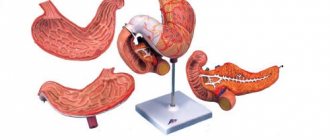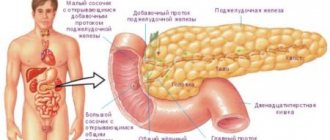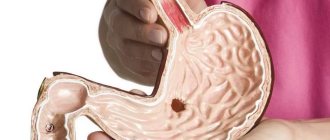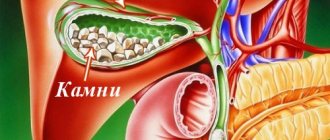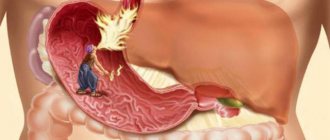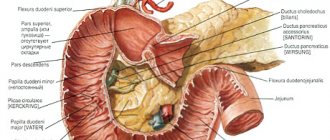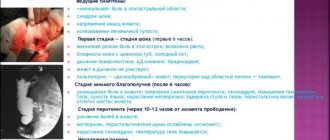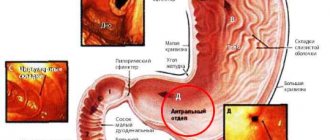Category: Types and forms Published 03/08/2019 · Comments: · Reading time: 9 min · Views: Post Views: 3,398
Hemorrhoids are a serious disease, the exacerbation of which can cause a person many unpleasant minutes. At the same time, its formation and development occurs rather slowly, which makes it possible to promptly identify and neutralize the problem. Today, treatment of external hemorrhoids is carried out in various ways, and its main components are determined based on the clinical picture of the course of the disease and the intensity of its symptoms.
Physiology of educational problems and factors provoking its development
The development of hemorrhoids occurs as a result of stagnation of blood in the pelvic organs. As a result, the blood circulation of organs and tissues located in the corresponding area is disrupted. Lack of nutrition leads to deformation of blood vessels and partial loss of their elasticity. Under the influence of provoking factors, such problems immediately make themselves felt, leading to the appearance of cracks in the anus and the formation of hemorrhoids.
The formation of the disease does not occur instantly, and in the initial stages it can be completely asymptomatic. As a rule, its development requires several years, during which the body is systematically negatively affected by a certain property.
Provoking factors of this kind include the following:
- sedentary lifestyle;
- increased body weight;
- presence of bad habits;
- systematic stress;
- overwork;
- frequent constipation;
- changes in hormonal levels;
- metabolic disease;
- diseases of the cardiovascular system;
- sedentary work.
The above conditions can provoke poor circulation in the pelvis and lead to the formation of hemorrhoids. However, its development is rather slow, even despite the influence of provoking factors.
Primary signs of a problem can cause some discomfort to a person, and ignoring them inevitably leads to aggravation of the situation and the development of complications. Today, in medical practice, two types of hemorrhoids are distinguished: external and internal.
Surgery
In advanced cases and ineffective use of drugs, surgical intervention is used:
Ligation
Regardless of the cause of the disease, external lumps can be eliminated using this method. Getting rid of the disease is quite simple. The doctor uses a special device to place a ring on the knot.
Ligation takes place within 10-15 minutes. The patient can go home the same day.
Infrared photocoagulation
The node can exit at the initial stages. In this case, it is possible to use this method of treatment. It involves applying heat to the lump, after which it will begin to shrink.
The photocoagulation operation is carried out within half an hour. Since there is no danger when using this method, the patient is sent home on the same day.
Primary symptoms of external hemorrhoids and possible complications
Internal manifestations of the problem arise and develop exclusively in the rectum, without protruding to its limits or spreading outward. In turn, external hemorrhoids are characterized by the edges of cracks extending beyond the anus and the prolapse of hemorrhoids. Moreover, it is the external manifestations of the disease that can cause the most discomfort.
Similar signs include:
- itching;
- burning;
- feeling of heaviness;
- pain during bowel movements;
- the appearance of bleeding.
Such manifestations arise gradually and are associated with the appearance of cracks, which are the primary signs of hemorrhoids. Their formation is characterized by a burning sensation and incessant itching in the anus. At the same time, over time, cracking of the rectum gradually heals and scars, but due to the fragility and deformation of the vessels, under the influence of provoking factors, they arise again. With each new occurrence, the cracks become wider and take longer to heal, provoking more severe symptoms.
Lack of timely treatment leads to the formation of hemorrhoids that arise in places of cracking. Such lumps consist of deformed vessels and can occupy most of the rectum, making defecation difficult and causing pain. However, they pose the greatest danger when they extend beyond the rectum and become pinched. This situation is accompanied by an abundance of unpleasant sensations and is characterized by the development of an inflammatory process that requires immediate elimination.
Minimally invasive methods
If medications do not help alleviate the patient’s condition, then the proctologist will use minimally invasive methods to get rid of external hemorrhoids:
- Infrared photocoagulation (effective in the initial stage of the disease);
- Ligation of hemorrhoid cones with latex rings (used for complicated hemorrhoids).
Latex ligation is one of the most effective ways to combat internal hemorrhoids.
It is important to understand that the hemorrhoid will not disappear as long as it is fed with substances from the patient’s circulatory system. The essence of ligation is to stop feeding the node.
To carry out the procedure, the proctologist uses a special endoscopic ligator, which is inserted into the patient’s rectum and wraps a latex ring around the hemorrhoid. It becomes fixed, and the lump stops being fed with the patient’s blood, gradually dying off. Until recently, latex ligation was considered a painful process, but modern medicine now has a huge number of pain-relieving methods that allow the operation to be performed quickly and without discomfort. It will take a little time to recover, just a few days.
Ligation of hemorrhoids at different stages
At stage I, the disease is at the very beginning of its development, the patient does not yet experience severe pain. Most often it is treated with medication, but if necrosis is suspected, latex ligation may be prescribed to remove external hemorrhoids.
Stages of hemorrhoids
At stage II, the pain becomes stronger and bleeding may occur. The patient feels discomfort caused by a growing hemorrhoid in the rectum. Therefore, removal of external hemorrhoids by latex ligation at this stage will be most effective.
At stage III, there is unabated constant pain, bleeding, and prolapse of nodes. Ligation is not prescribed as often as in stage II, since internal nodes often fall out.
IV – advanced stage of the disease, causes unbearable pain to the patient. Removal of external hemorrhoids by ligation may not bring the desired effect; complex drug treatment or surgical intervention would be much better.
Carrying out latex ligation
Treatment of hemorrhoids in women and men: directions of complex therapy and its purpose
External hemorrhoids can occur equally in both men and women. Moreover, its treatment is based on identical principles and involves the use of an integrated approach consisting of several equivalent areas. The composition of therapy should be determined by a doctor based on the clinical picture of the course of the disease and the intensity of its manifestations. At the same time, any self-medication is strictly prohibited, since it can lead to a significant aggravation of the situation and suppuration of hemorrhoidal cones.
Treatment of hemorrhoids in men and women is carried out according to absolutely identical principles, although it contains its own specific features.
Complex therapy may include the following areas:
- drug effects;
- preventive actions;
- folk remedies;
- surgical intervention.
Each of these vectors can be used to treat manifestations of hemorrhoids. At the same time, their prescription is carried out by the attending physician based on the structure of the manifestations of the problem. Its timely diagnosis makes it possible to get by with little and save a person from the symptoms of hemorrhoids with the help of preventive measures. Worsening symptoms, accompanied by a significant increase in cracks, require the use of medications, and the loss of lumps and their suppuration requires surgical intervention.
Treatment of hemorrhoids aims not only to suppress the symptoms of the disease, but also to get rid of the root cause of its formation. To neutralize the manifestations of the disease, various medications or folk remedies are used, and in extreme cases, surgery. At the same time, eliminating the cause of the development of the disease is entrusted to preventive measures designed to strengthen the body.
The criteria for getting rid of hemorrhoids are identical for men and women; the only factor contributing to the introduction of specific measures is hormonal disorders. In such a situation, corrective hormonal agents are prescribed, which include testosterone and estrogen. In all other cases, therapy for the disease is based on the use of the same means.
Symptoms
People sometimes try to ignore the first signs of illness, which is wrong. It is better to cure hemorrhoids at an early stage than to develop them and suffer from unbearable pain. Symptoms of hemorrhoids occur in increasing order in a certain order:
- Itching and burning appears in the anal area.
- Discomfort occurs during bowel movements.
- Small seals appear in the area of the anal ring, which may decrease or temporarily increase.
- There is an increase in the number and size of external hemorrhoids.
- Pain appears, which intensifies when sitting or standing.
- The act of defecation is made difficult by severe pain, psychological constipation occurs - a person deliberately postpones bowel movement, not wanting to experience pain.
- Small amounts of blood appear on toilet paper or underwear because the external hemorrhoid is damaged by feces.
- The pain intensifies, now it hurts a person to sneeze, cough, any muscle tension causes severe pain, which can spread to the entire perineum.
- Anal fissures appear.
People usually see a doctor at these stages, most often starting with the appearance of the fourth symptom.
The longer hemorrhoids remain untreated, the more the disease will progress, which can lead to complications in the future.
Video
Features of treatment of hemorrhoids during pregnancy
A special issue is the treatment of hemorrhoids during pregnancy. Most often, the development of the disease occurs after childbirth and is provoked by pushing, during which the pelvic organs are overstrained and tissues are stretched. However, sometimes its symptoms begin to appear even before the onset of labor and are a consequence of the lifestyle of the expectant mother.
Therapeutic effects in relation to pregnant women are extremely delicate, since they should not include any drugs that can affect the child.
Based on this, any drugs that are absorbed into the blood and can affect the course of pregnancy must be used with extreme caution and strictly adhere to the instructions.
In such a situation, therapy is based on the use of a variety of folk remedies and preventive measures designed to eliminate the manifestations of the disease with minimal consequences for the woman’s body.
Important! The prescription of any medications, as well as the determination of the composition of the therapeutic effect, should be carried out exclusively by the attending physician observing the pregnant woman. Only he has the right to introduce new directions in treatment or remove ineffective drugs. Moreover, after using this or that product, studies are conducted to determine its effect on the child.
What are hemorrhoids?
The answer to the question, what is hemorrhoids, will allow you to understand how to deal with it. A hemorrhoid is a plexus of varicose vascular canals located either in the submucosal layer of the rectal canal or under the skin around the anus.
Such cavernous (cavernous) formations are fed by arterial blood, which enters through a wide network of blood vessels.
Blood leaves through the main venous vessels, which lie, as already noted, in the anal canal and around the rectal ring. Together with the tissues, the veins form peculiar “pockets” called caverns. Due to the weak tone of the venous channels and the incompetence of the venous valves, which prevent the return of blood into the vessels, the disease develops.
As a result, blood stagnates and hemorrhoids begin to appear (expand and deform), which in the normal state are not visible and cannot be felt when palpated.
When the disease worsens, tissue inflammation, infection by pathogenic bacteria, and damage from solid fecal matter often occur. As a result, symptoms of hemorrhoids appear, such as bleeding or prolapse of nodules.
A hemorrhoid is a plexus of varicose vascular canals located either in the submucosal layer of the rectal canal or under the skin around the anus.
Use of medicines: dosage forms and their classification
Treatment of manifestations of external hemorrhoids involves the use of various types of medications, and preventive measures and traditional medicine perform an exclusively auxiliary function. In this case, the use of medications is aimed at neutralizing the symptoms of the disease and accelerating tissue recovery.
They are used in two main forms:
- ointments;
- rectal suppositories.
It is these two dosage forms that have the most extensive effect on tissues and help eliminate symptoms. At the same time, their use makes it possible to partially restore blood circulation to damaged tissue areas and accelerate tissue regeneration. Under the influence of drugs, deformed vessels become much stronger, cracks heal faster, and hemorrhoidal cones are retracted back, forming a layer of smooth epithelium.
Most of these products have drying, restorative, warming, decongestant and other properties that ensure normal blood supply to damaged tissue areas and stimulate their healing.
The list of the most effective ointments in combating the consequences of hemorrhoids is as follows:
- Troxevasin;
- Hepatrombin G;
- Relief;
- Bezornil;
- Heparin ointment.
The above remedies are used exclusively for the treatment of external hemorrhoids and are absolutely ineffective against its internal manifestations. A more complete action that allows you to influence the signs of a problem of any localization is rectal suppositories.
Their effectiveness is at a much higher level, and the list of the most popular drugs of this kind looks like this:
- Relief Advance;
- Relief Ultra;
- Hepatrombin G;
- Procto-Glyvenol;
- Posterisan;
- Natalsid.
Such remedies are used to get rid of the consequences of hemorrhoids in both women and men. At the same time, a positive effect from their use can be obtained only when we are talking about the treatment of a disease that has not reached the later stages and is characterized by inflammation of the hemorrhoids.
Stages of hemorrhoids in the photo
External hemorrhoids and varicose veins of the rectum develop gradually and successively go through several stages. Signs of hemorrhoids in women and men also increase over time, gradually becoming more intense.
Signs of hemorrhoids in women and men also increase over time, gradually becoming more intense.
Photos of the initial stage
The symptoms of the initial stage of hemorrhoidal disease do not differ in severity and brightness. Male and female hemorrhoids at this stage are manifested by itching, burning and irritating processes in the anal area.
With increased efforts while visiting the restroom, the patient feels incomplete emptying. If the small internal nodule is damaged by hardened stool, blood splatters are left on the toilet paper.
How to treat hemorrhoids at the first stage? The first symptoms of the disease can be successfully relieved with the help of conservative therapy, which involves the use of venotonic tablets, suppositories and/or ointments.
Moreover, the patient must also follow the recommendations of the treating doctor, which relate to changes in diet, lifestyle and giving up most bad habits.
Pictures of second stage hemorrhoids
In the absence of competent therapy, incipient hemorrhoids move to the next stage.
Pain increases or appears, especially with increased efforts while visiting the restroom, the walls of the venous vessels are deformed, filled with blood and protrude into the rectal canal or beyond, but then return back.
It is most often at the second stage of the pathological process that bloody traces from the anus appear. They can be either in the form of drops on paper or in the form of splashes on toilet faience.
Photos of second-degree hemorrhoids confirm that the nodules are already quite enlarged, which is why more thorough therapy is needed, which involves not only taking medications, but also using minimally invasive treatment methods.
Photo of third degree hemorrhoids
Hemorrhoidal disease of the third stage manifests itself with the same symptoms as in the previous stage. The main difference is that a person’s well-being begins to worsen:
- mucous discharge appears;
- bleeding increases;
- the pain becomes more intense.
As the hemorrhoids in the photo demonstrate, the pathological process affects not only the venous vessels themselves, but also the muscles of the rectal canal.
Inflamed and deformed hemorrhoids begin to increase in size not only when the rectum is emptied, but also in the event of lifting heavy objects, serious or intense physical activity.
Hemorrhoids are no longer able to go back “on their own.” After the release of fecal matter, it remains outside the rectal canal, so the person is forced to return it to its original place with his hands.
Treatment of grade 3 hemorrhoids is rarely treated with conservative therapy alone. Medicines are prescribed only to relieve acute symptoms, and minimally invasive techniques are usually used to get rid of hemorrhoids.
Pictures of the fourth stage of hemorrhoids
The last degree of hemorrhoidal disease is an advanced case of the pathological process. It is not surprising that the symptoms of male and female hemorrhoids differ in maximum severity.
The main manifestation of the fourth stage of the disease is the emergence of a large cavernous formation from the rectum and the impossibility of its reduction even with hands. Nodules can pop out due to any, even minimal physical activity: laughing, sneezing, sudden movement.
An advanced disease is characterized by intense bleeding from the nodules, acute pain, and inflammation of the lumps themselves and nearby tissues.
[morkovin_vg video=”wW-gnc1P_Uw;o3UZTSp4pRs;-z9BCmi5Sx0;lA61C1l9d-g”]
In addition, the result of prolapse of cavernous formations are complications of the pathological process such as:
- thrombosis of hemorrhoidal veins;
- infringement of nodes;
- tissue necrosis.
Advanced or complicated hemorrhoids require urgent and serious treatment. In this case, medications no longer help; they are left for postoperative rehabilitation. Enlarged hemorrhoids are usually removed with radical surgery.
Photos and videos of the fourth stage of varicose veins and hemorrhoids are not the most pleasant sight, but they can stimulate a person to contact a proctologist as soon as possible.
Traditional medicine: the most effective recipes and their descriptions
One of the vectors of complex therapy that plays a supporting role is the use of traditional medicine. Its purpose is to enhance the action of basic medicines and consolidate the effect obtained from their use. Their prescription and use is carried out only with the permission of a doctor, as well as under his strict supervision. Otherwise, such therapy can bring diametrically opposite results and do more harm than consolidate the main treatment.
The safest and most effective folk remedies for neutralizing the effects of hemorrhoids are the following recipes:
- You should drink 100-150 ml of fresh rowan juice, stirring it with exactly the same amount of water. The approximate course of therapy using such a remedy is no more than 3-5 days and is used in the treatment of the initial stages of the development of the disease.
- You need to drink 200 ml of cabbage brine daily. Moreover, it should be taken 20-30 minutes before meals or an hour after it. The entire course of therapy using this remedy is 3-10 days, but if desired and there are no side effects, it can be extended until complete recovery.
- An infusion of strawberry leaves serves as an excellent anti-inflammatory and disinfectant. It should be used 2-3 times a day, applied to the affected areas, until the discomfort completely disappears.
- Immediately before going to bed, 2-3 ml of cedar oil should be injected into the rectum, and so that it does not leak out, the hole should be plugged with a gauze swab.
- A decoction of horsetail herb or thorn leaves is used as a lotion. Using similar means, a gauze or cotton swab is moistened, which is fixed directly in the area of hemorrhoid development.
Traditional treatment can bring positive results and significantly accelerate tissue restoration. However, this becomes possible only when it is carried out under the supervision of a doctor and strict compliance with his requirements.
Folk remedies for external hemorrhoids
There are many folk remedies used at home, including ointments, suppositories, lotions and baths that relieve inflammation, eliminate itching and burning in the area of emerging hemorrhoids. Recipes from the treasure trove of traditional medicine significantly speed up the treatment and healing process, because the main components are natural substances that also prevent the formation of blood clots.
Treatment of external hemorrhoids with folk remedies at home involves the use of healing sedentary and steam baths. Baths with herbal decoctions, according to many who have used them, are considered the most effective method of alternative medicine.
The following herbs are used as a herbal healing basis for sitting procedures:
- Chamomile, calendula;
- Horsetail;
- Calamus root;
- Oak bark;
- A series of birch leaves.
It is best to brew herbs in a water bath at the rate of one tablespoon per glass of water. The duration of the procedure is 10 minutes daily, the temperature should not exceed 38 degrees. Over the course of a month of treatment, improvements and reductions in hemorrhoids will be noticeable.
Among medicinal herbs, knotweed is considered an effective remedy - it has a powerful anti-inflammatory effect. The decoction is prepared in the same way as for the previous baths; you can take it orally or apply lotions to the pathological areas of hemorrhoids for 5-10 minutes.
For inflammation of hemorrhoids, use onion or garlic gruel steamed with milk (1 tablespoon of gruel per 0.5 liter of boiled milk). Place the sore spot in the container and sit until the broth cools down. Healing, anti-inflammatory, anti-allergic effects at home are guaranteed.
Folk remedies for external hemorrhoids prepared from raspberry leaves, buckthorn or carrot tops are good for relieving pain and inflammation.
To prepare a raspberry decoction for the treatment of hemorrhoids, you need to pour two handfuls of leaves with a glass of boiling water and let it brew for half an hour. 1/3 of the resulting infusion is taken 15 minutes before meals three times a day.
An infusion of chamomile and onion peel will be a wonderful help for bleeding hemorrhoids:
- 1 tbsp. a spoonful of chamomile flowers is infused in a glass of boiling water;
- In a similar way, brew a handful of onion peels;
- By mixing the decoctions, you get a healing antihemorrhoid solution, in which a piece of gauze is moistened and applied warm to the sore spot.
To strengthen the vascular wall and provide a venotonic effect, infusions of rose hips, horse chestnut or hazel are used internally. Their medicinal properties have long been proven and are actively used in the fight against a delicate problem.
Properly selected treatment of external hemorrhoids at home using folk remedies will give tangible results and significantly alleviate the patient’s condition.
Is it possible to cure external hemorrhoids at home?
Many people are interested in the question of whether it is possible to get rid of external hemorrhoids without medications and surgeries, which is definitely quite difficult to answer. Such a development of events is possible, but only when we are talking about the initial stages of the disease. Preventive measures aimed at strengthening the body, stimulating the circulatory system and increasing the elasticity of blood vessels will help remove its primary manifestations.
You can cure the initial stages of hemorrhoids at home, but to do this you will have to completely reconsider your lifestyle. Otherwise, no means provide a 100% guarantee of recovery. Moreover, even after the operation, the disease will return again if measures are not taken in a timely manner and your attitude to life is not changed.
You can neutralize small cracks and hemorrhoids using the following means:
- rejection of bad habits;
- nutrition control;
- active lifestyle;
- systematic sports;
- avoiding stress and overwork;
- complete rest.
These simple principles allow you to get rid of the symptoms of hemorrhoids, which are in the initial stages of their development, in the shortest possible time. In addition, their observance is a guarantee that the disease will not return again, and the body will become stronger and more resilient, which will have a beneficial effect on a person’s life.
Suppositories for external hemorrhoids
External hemorrhoids can be overcome with a comprehensive treatment method at home, the basis of which is suppositories. Rectal suppositories relieve pain, reduce inflammation, reduce swelling, and help dissolve blood clots.
For the external type of hemorrhoids, the following will help:
- Hepatrombin G suppositories are used at home for thrombosis of external nodes. Sodium heparin stimulates fibrinolyzing enzymes to dissolve the clot. After removing the blockage of the dilated vessel, pain, swelling, redness and discomfort of the perineum decreases;
- Natalsid suppositories have natural, harmless sodium alginate as an active base. They have an enveloping, calming effect. Indicated for external hemorrhoids in women to remove the inflammatory process, stop capillary bleeding, and reduce itching of the anus;
- combined suppositories Ginkor-Procto will bring relief to men suffering from hemorrhoids and prostatitis. A potent extract of the Far Eastern ginkgo tree strengthens blood vessels, stimulates tissue regeneration, eliminates congestion in the pelvic organs;
- suppositories with sea buckthorn oil are an excellent natural antiseptic, analgesic, activator of restoration processes of mucous membranes and skin. If hemorrhoids come out at the wrong time, suppositories with sea buckthorn oil will relieve pain, swelling, and itching at home.
Rectal suppositories are used for treatment at home after bowel movements and hygiene procedures. For acute signs of external disease, the suppository is injected shallowly in the morning and at night. After relieving severe symptoms, use a maintenance dose of one suppository per day. The course of treatment with rectal suppositories is one to two weeks.

